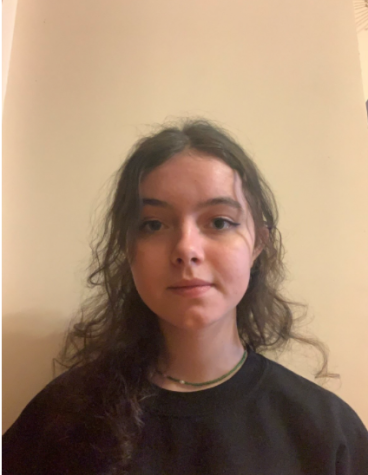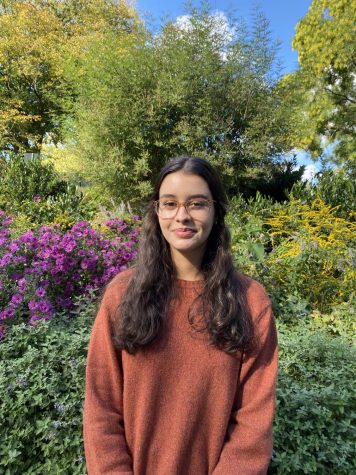Student Spotlight: Aleksandra Pawlowska
March 17, 2022

Aleksandra Pawlowska, a senior in the Chemical Engineering major, has been working as a research assistant for the past two years at the Mobbs Laboratory at the Icahn School of Medicine at Mount Sinai on Olfactory Dysfunction.
Her curiosity was sparked by an increased number of people experiencing a loss of smell after contracting COVID-19. Pawlowska explained, “Since I started researching right before the pandemic, news about COVID and the potential side effects began to appear in a bunch of articles that I was reading. I first stumbled upon the idea when my friend caught COVID in March of that year, causing her to lose both her taste and scent for the next couple of months, without the proper testing material to confirm it.”
During her time at Mobbs Laboratory, Pawlowska took part in a research effort that found that stress levels play a role in detecting Olfactory Dysfunction, which is the reduced or complete loss of sense of smell. By looking at skin conductance through galvanic sensors, which measure the skin’s electrical conductivity to a stimulus, it was determined that those with olfactory dysfunction had higher stress levels. Since not being able to smell stresses the body, this could be revealed by observing higher stress levels in the skin through the galvanic sensors.
Pawlowska developed a testing method that allowed her to determine if people who had COVID have Olfactory Dysfunction. She explained, “When researching methods, I ordered a pair that connected to my phone to test my theory. I had developed a strategy for experimentation, where I used almond extract to see their reaction to the scent. Turns out, I tested about 15 people, 5 of which had olfactory dysfunction, and their results had a ‘flatline,’ meaning no response to the scent was found on the graph; whereas the other 10 had varying results while still showing a response of some sort.”
Although this research is helpful towards those experiencing a loss of smell due to COVID-19, Pawlowska also explained how significant Olfactory Dysfunction is to larger health issues: “We’ve been developing this project amongst many others in the lab to detect Alzheimer’s and Parkinson’s disease. There have been a few studies that introduce the idea that one of the first symptoms of these neurodegenerative disorders is a gradual loss of scent that many people fail to notice, so by developing these techniques amongst many others, we’re planning on one day carrying out a study to see whether galvanic sensors can be used as a tool to confirm an aspect of Alzheimer’s or Parkinson’s.”
She hopes her efforts demonstrate that research during high school is possible, and encourages other students to also pursue their interests: “Many forget that research isn’t just STEM but goes across every single interest one might have. You meet many more experienced people along the way, MD-PhDs, medical students, undergrads, which might seem daunting at first and may mean you read and study more to get ahead of the material, but in the end, you learn so much in a short amount of time.”
Pawlowska’s experience at Mobb’s Laboratory has developed her ability to comprehend difficult statistical analysis and carry out mathematical operations beyond what she learns in school; it has also introduced her to C++, a coding language that she uses for programs such as MatLab that record data.
To other high school students looking for ways to get involved in research, she offers some advice: “Research comes before research. Find something you love. And as cliche as it sounds, it’s true…find your professor. They might be at a hospital lab, college lab, science center lab, or a medical school lab. Most importantly, know that some professors will say no. Sometimes they prefer a college or graduate student instead of a high school student. Some labs have age requirements or want a specific skill set. Regardless, send that email to that professor. Before they know you in person, they have to get to know you through that one email.”
She also encourages students to stay optimistic: “You may feel overwhelmed at first and not be able to decide on a subject or find that there isn’t anything specific to be researched. You might also think that you can’t do groundbreaking research because you can’t do a case study or recruit hundreds of participants. That’s wrong.”
Pawlowska says that her research on Olfactory Dysfunction is far from done. She is currently working on publishing her research and is spending time modifying the algorithm she originally created to model her collection of data from testing.






































